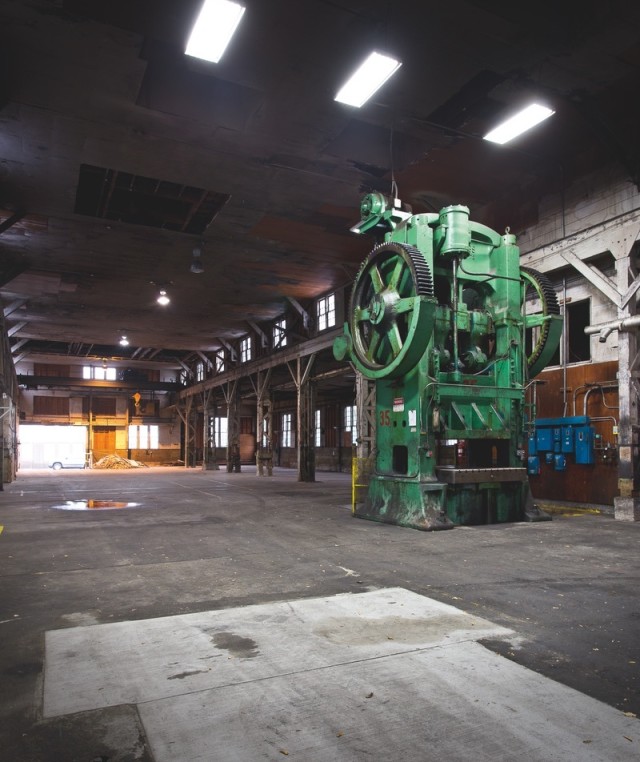Link to the article.
Right now, the dilapidated warehouse stretching a full city block on SE Salmon Street is simply the skeleton of a 96-year-old ironworks, neglected for decades. In 2016, however, the environmental nonprofit Ecotrust plans to turn this cavernous Central Eastside space into an incubator for artisan food businesses, where Oregon-grown crops become new products devised by Portland start-ups sharing production, storage, and distribution facilities.
As of now, “The Redd on Salmon Street”—the new name refers to the nesting grounds of actual salmon—is largely empty, except for an antique industrial press. As a concept, however, the building and Ecotrust’s dreams for it come laden with promise as a new asset for Portland’s gastro-entrepreneurs and an example of enlightened capitalism. The plan is to execute a sustainability-focused renovation, then seed the facility with businesses that strengthen Portland’s local food sector and its connection to the region’s farmers.
According to Nathan Kadish, director of investing at Portland-based Ecotrust, the remodeled incubator would add a sustainability focus to Portland’s already robust cluster of food labs and start-ups. “Oregon State’s Food Innovation Center has tremendous resources,” Kadish says of the OSU development lab on NW Naito Parkway, “but we want to make the Redd a destination to talk about the food system as a whole, not just artisan food products.”
That vision speaks to a larger concept: “impact investing,” a strategy that weighs social and environmental returns along with profit. The idea is not new; Ecotrust itself, for example, has created for-profit spin-offs in sustainable timber and ocean management. However, the model has long been synonymous with somewhat anemic returns.
“People started thinking of impact investing as what you do with the 5 percent of your portfolio you talk about at a cocktail party,” Kadish says. He and Ecotrust want to change that by factoring environmental uncertainty into investors’ thinking.
“Our investments might make 2 or 3 percent less over the short term,” he explains. “But with future carbon taxes, investments in forests and farmlands will eventually crush industrial benchmarks. With water scarcity, a green building is going to pay off for itself exponentially, 10 to 15 years down the road.”
